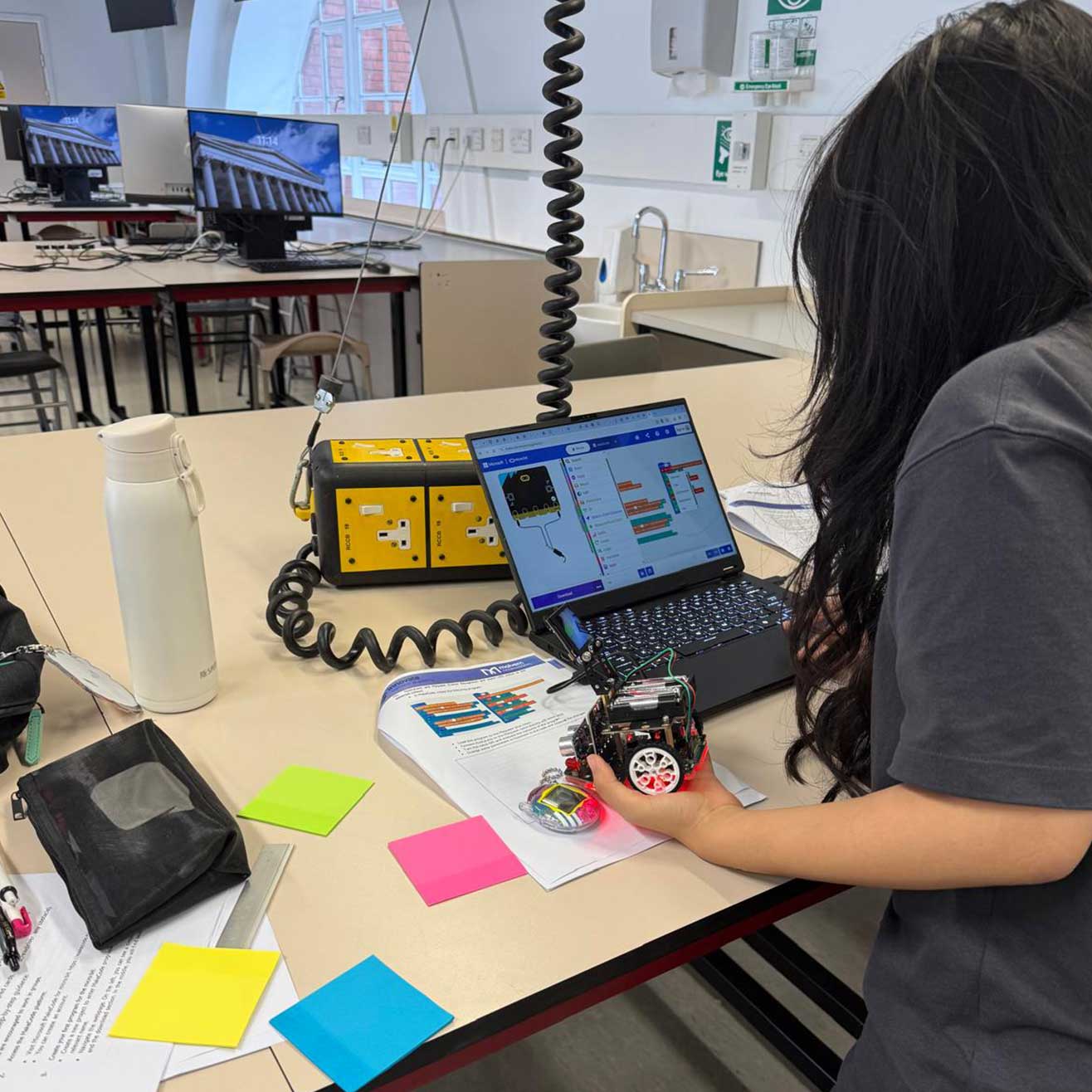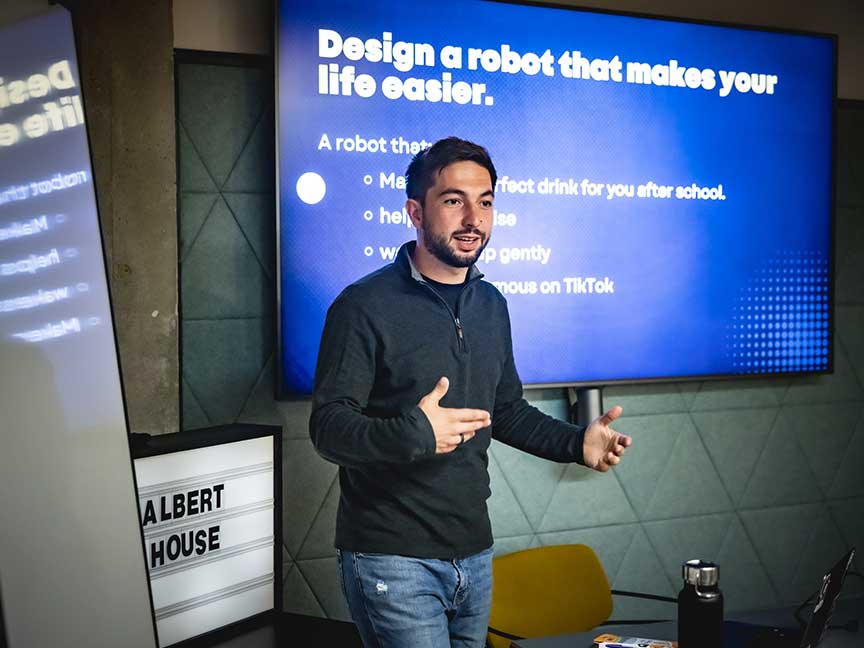The programme covers foundational modules like computer science, programming, artificial intelligence, and machine learning, with a strong emphasis on both theoretical knowledge and practical skills. Students will learn through hands-on projects, be taught programming languages, and software development techniques. Our curriculum also highlights ethical considerations and societal impacts of AI, encouraging a responsible approach to technology.
- You are viewing an automatically translated version of this website



















